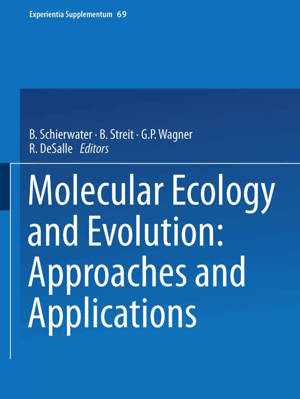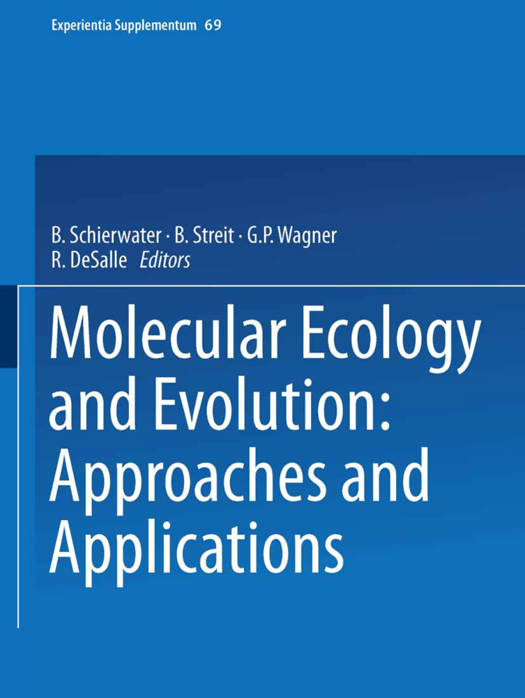
- Retrait gratuit dans votre magasin Club
- 7.000.000 titres dans notre catalogue
- Payer en toute sécurité
- Toujours un magasin près de chez vous
- Retrait gratuit dans votre magasin Club
- 7.000.0000 titres dans notre catalogue
- Payer en toute sécurité
- Toujours un magasin près de chez vous
Molecular Ecology and Evolution: Approaches and Applications
105,45 €
+ 210 points
Description
In the last 25 years, we have witnessed a revolution in the way that ecologists and evolutionary biologists approach their disciplines. This revolution has been fueled by the ability to dissect the genetic and molecular basis of variation that is partly the currency of these disci- plines. Using modern molecular techniques, we have begun to restruc- ture the spectrum of questions that can be addressed in studying the mechanisms and consequences of the ecology and evolution of living organisms. The molecular revolution has co me in waves, so to speak, with three particularly important developments. The first concerns the establish- ment and widespread use of pro tein analysis. Microcomplement fixation and isozyme e1ectrophoresis were the techniques around which much of the genetic work in ecology and evolution were once based. The next wave started with the development of recombinant DNA technology and centered around the use of restriction fragment length polymor- phisms (RFLPs) and sequencing of DNAs cloned in bacteria. This technology was the first to actually examine and accumulate genetic information at the nucleotide level. The most recent wave of technology that we are currently experiencing is based on our ability to amplify DNA sequences enzymatically via the Polymerase Chain Reaction (PCR). Several techniques re1ated to PCR have been developed and used extensively in ecological and evolutionary studies.
Spécifications
Parties prenantes
- Editeur:
Contenu
- Nombre de pages :
- 626
- Langue:
- Anglais
- Collection :
- Tome:
- n° 69
Caractéristiques
- EAN:
- 9783034875295
- Date de parution :
- 03-10-13
- Format:
- Livre broché
- Format numérique:
- Trade paperback (VS)
- Dimensions :
- 210 mm x 279 mm
- Poids :
- 1415 g

Les avis
Nous publions uniquement les avis qui respectent les conditions requises. Consultez nos conditions pour les avis.





